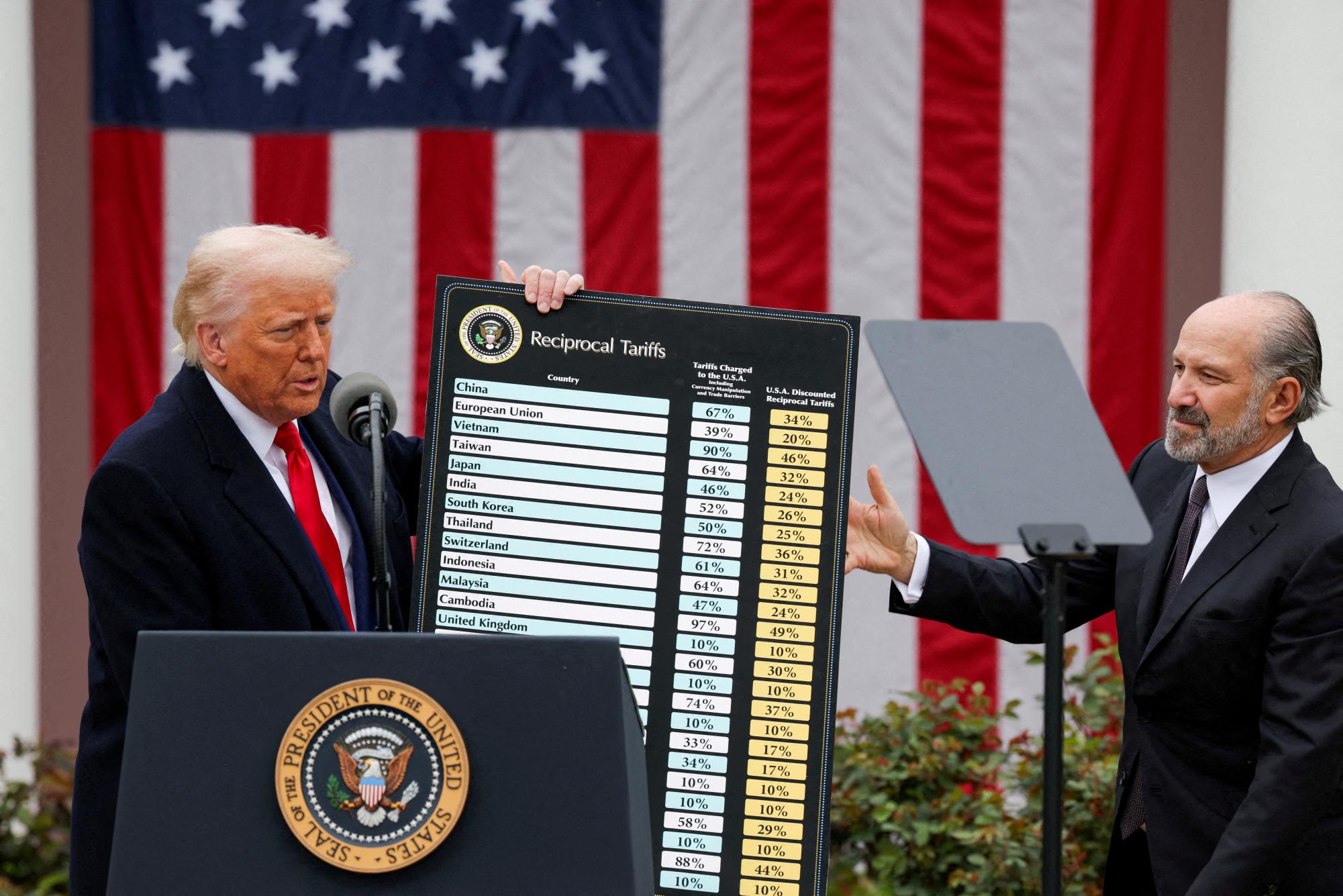On April 2, 2025, President Donald Trump announced new tariffs on imports to the United States. These tariffs include a 10% tax on all imported goods and higher rates for specific countries. For example, imports from Japan face a 24% tariff, the European Union 20% and Vietnam 46%.
The fashion industry is feeling the impact of these tariffs. Andrew Chen, who runs the New York-based clothing brand 3sixteen, shared on TikTok how his company is affected. He explained that the tariffs lead to higher costs for materials like Japanese denim and Canadian fleece, which may increase retail prices by $50 per item.
Chen also mentioned that the changing tariffs create uncertainty in business planning and could make it harder to sell products overseas.
The clean energy sector is also concerned about the tariffs. Experts, individuals and groups specializing in trade, economics and the energy industry, warn that the increased costs for items like solar panels and batteries, which are mostly imported, could slow down the progress of clean energy projects. This might make it harder for the U.S. to reach its energy goals.
In the stock market, the announcement of the tariffs led to a drop in major indexes. The Dow Jones, S&P 500 and Nasdaq all saw declines. Companies like Apple and Tesla were notably affected, with Apple’s stock hitting an 11-month low. Investors are worried that the tariffs could lead to higher consumer prices and possibly a recession.
“I understand the need to protect local industries, but I hope it doesn’t hurt our relationships with other countries.” senior Phoebe Nguyen said.
The new tariffs are expected to have wide-reaching effects on various industries and consumers. As the situation develops, many are watching closely to see how these changes will impact the economy and daily life.
Big tech companies like Apple and Tesla were some of the first to feel the impact. Since they get many of their parts from other countries, the tariffs could raise production costs, meaning phones, laptops and cars could rise in prices.
“I just saved up for a new phone,” junior Venus Cervantes said. “If it becomes more expensive, I might have to wait another year. It’s frustrating because it feels like we’re being punished for something we didn’t do.”
President Trump said the goal of these tariffs is to help American businesses. The idea is that if foreign goods become more expensive, people will buy more products made in the U.S. That way, local companies can grow and create more jobs.
But not everyone agrees. Some students worry that the U.S. could hurt relationships with other countries. If other nations respond by adding their own tariffs to American goods, it could start a trade war where both sides keep raising taxes on each other’s products.
“It’s like a fight where everyone loses,” junior Wyatt Lee said. “In the end, prices just go up and nobody wins.”
However, since then, Trump has gone back on his decision — marking a 90-day pause on tariffs beginning Monday, May 12. This pause only applies to China and will revert the 145% tariff back to the base 30%.
Though the turmoil surrounding tariffs is considerably recent, many people are already feeling uncertain. Small business owners are nervous and students are beginning to ask more questions about how politics affects them. Teachers have even started using the topic in class discussions.
“My teacher talked about it in class,” junior Allanna Barrios said. “It’s actually interesting because now I see how decisions in the White House can affect what’s in my backpack.”
As the weeks go on, we’ll see how these tariffs change prices, jobs and even student life. For now, one thing is clear — these decisions are no longer just something adults talk about. Teens across the country are paying attention too.






